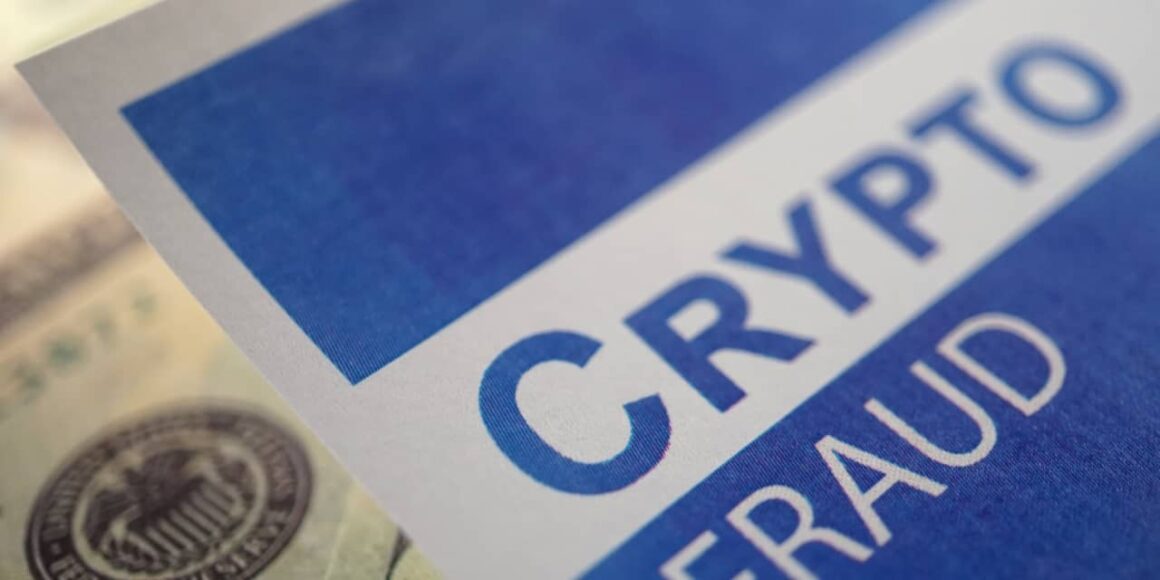
 Introduction: The Double-Edged Sword of Crypto in Nigeria
Introduction: The Double-Edged Sword of Crypto in Nigeria
Cryptocurrency has emerged as a financial revolution in Nigeria. With a young, tech-savvy population and rising inflation, millions of Nigerians see digital assets as a pathway to financial independence. Nigeria even ranks among the top global adopters of cryptocurrency, with billions in transactions every year.
But this promise comes with a dark underside: crypto fraud. From Ponzi schemes to rug pulls, from phishing emails to fake exchanges, Nigerians are losing hard-earned money at alarming rates. Behind every statistic is a student, trader, or small business owner whose dreams were shattered.
This is where finance companies come in. With their networks, credibility, and tools, they can protect the masses not only by blocking fraud but also by educating users. The challenge isn’t just to warn Nigerians, but to empower them. In this blog, we’ll explore how.
Nigeria’s Crypto Boom — and the Dark Side of Growth
Nigeria has one of the fastest-growing crypto adoption rates in the world. Young people flock to Bitcoin, Ethereum, and stablecoins to escape the naira’s volatility.
But where money flows, fraud follows.
- Ponzi schemes disguised as crypto “investment opportunities.”
- Fake wallets promising impossible returns.
- Influencer-backed coins hyped on social media, only to crash.
- Scam exchanges that vanish with deposits overnight.
One infamous example was the meme coin $DAVIDO, launched by Nigerian celebrity Davido in early 2025. Within hours of promoting it, he reportedly withdrew nearly half a million dollars before the coin crashed—leaving thousands of hopeful investors stranded.
Nigerians aren’t gullible; they’re desperate. In a country where access to jobs and financial stability is tough, the dream of doubling money overnight is tempting.
Unfortunately, this environment has turned into a goldmine for fraudsters and a nightmare for ordinary citizens.
Anatomy of Crypto Fraud in Nigeria
To fight fraud, we must understand its forms.
1. Ponzi Schemes
These operate as “crypto investment clubs” where old investors are paid with money from new ones. They collapse when new signups slow down.
2. Rug Pulls
Developers launch a flashy coin, attract investors, and then “pull the rug” by dumping their tokens and vanishing.
3. Phishing Attacks
Hackers use fake emails, websites, or SMS messages to trick users into giving away passwords or seed phrases.
4. Fake Wallets and Exchanges
Scammers build apps that look like legitimate exchanges but are coded to steal deposits.
Why scams succeed in Nigeria:
- Weak financial literacy.
- Poor enforcement by regulators.
- High unemployment, making “get rich quick” schemes attractive.
- Social media hype from celebrities and influencers.
Without proper education, Nigerians often don’t realize it’s fraud until it’s too late.
Finance Companies as Guardians of Trust
Why should finance companies care? Because trust is their strongest currency.
Unlike anonymous crypto influencers, finance companies already serve millions through banking apps, payment platforms, and lending services. Nigerians trust them with salaries, bills, and savings. Extending that trust into the crypto space is natural.
Unique Advantages Finance Companies Bring:
- Reach: They already have millions of users on mobile apps.
- Brand Credibility: A fraud alert from a bank feels real, unlike a random tweet.
- Tools: They can integrate monitoring systems and fraud filters.
- Partnerships: They can collaborate with regulators and law enforcement.
By acting now, finance companies don’t just save people from scams. They build loyalty, expand their services, and strengthen their reputation.
How Finance Companies Can Intervene
| Role | What They Can Do | Benefit for Consumers |
|---|---|---|
| Public Awareness | Push SMS or app alerts about new scams | Immediate warnings, reduced losses |
| Education Campaigns | Short videos, webinars, and quizzes on crypto literacy | Smarter investors, fewer victims |
| Monitoring Transactions | Use blockchain analytics to flag risky activity | Early detection of fraud |
| Partnerships with SEC | Share fraud data with regulators | Stronger enforcement, fewer repeat scams |
| Reporting Channels | Add “Report a Crypto Scam” button in banking apps | Faster action, community protection |
This proactive role transforms finance companies from bystanders into guardians of everyday Nigerians.
Real Stories: When Education Saves Millions
Crypto education is not a luxury—it’s a shield.
When $DAVIDO coin crashed, thousands of Nigerians lost money. Most victims admitted they had never researched what a rug pull meant. If finance companies had run campaigns on spotting red flags—like promises of guaranteed profit—many could have avoided the loss.
Crypto investigator Kunle Taiwo argues that “quality crypto education is the only potent weapon to fight fraudulent actors.”
In other countries, digital banks have already made education part of their customer experience. Nigeria can replicate this.
👉 For example, Singapore’s finance sector combines public alerts and consumer education to fight scams effectively (Monetary Authority of Singapore). Nigeria’s finance companies can adopt similar strategies, localized for its unique context.
The Three Pillars of Protection
1. Awareness Campaigns
Finance companies can use their platforms to run awareness drives:
- SMS alerts about trending Ponzi schemes.
- Pop-up warnings inside banking apps.
- Radio jingles for rural communities.
2. Consumer Education
Education must be simple, visual, and relatable. Examples:
- Explainers: “What is a rug pull?”
- Gamified quizzes rewarding users who answer scam-related questions.
- Collaborations with universities, churches, and NGOs.
3. Fraud Detection Tools
Finance companies can integrate blockchain analysis to:
- Track flagged wallets.
- Freeze suspicious transactions.
- Share intelligence with regulators.
When combined, these pillars can turn the tide against fraud.
Challenges Finance Companies Will Face
Of course, this mission isn’t easy.
- Regulatory Confusion: Nigeria’s crypto regulations are often unclear, leaving companies unsure of their boundaries.
- Costs: Building fraud detection systems is expensive.
- Consumer Resistance: Some Nigerians may dismiss alerts, thinking “this time is different.”
- Evolving Criminals: Scammers constantly adapt, creating new fraud models.
But the cost of doing nothing is far greater. Every scam erodes trust not only in crypto but also in the financial system itself.
Action Plan for Finance Companies
Here’s a roadmap to make intervention real:
- Push Timely Alerts – Notify customers when new scams trend online.
- Offer Bite-Sized Learning – Simple infographics and TikTok-style videos explaining scams.
- Partner with Regulators – Collaborate with SEC, EFCC, and ARCON.
- Encourage Reporting – Let users report suspicious schemes via banking apps.
- Use AI & Analytics – Predict patterns of scam-related transactions.
- Promote Due Diligence – Remind users: “Always check if a crypto company is licensed.”
This is not just corporate responsibility—it’s future-proofing the Nigerian financial ecosystem.
Global Best Practices Nigeria Can Adapt
Crypto fraud is not unique to Nigeria. Countries worldwide have faced similar challenges, and many have developed effective frameworks to protect investors while promoting innovation. By studying these global best practices, Nigeria can design solutions that are both context-specific and globally aligned.
Singapore: Centralized Scam Alerts and Financial Education
Singapore is one of the world’s leaders in financial regulation and fraud prevention. The Monetary Authority of Singapore (MAS) collaborates with banks, telecoms, and fintechs to issue real-time scam alerts.
Key initiatives include:
- ScamShield App: Filters scam calls and SMS messages.
- Consumer Education: Public campaigns teach citizens how to spot investment scams.
- Tight Regulation: Crypto exchanges must be licensed, with strict anti-money laundering (AML) checks.
Lesson for Nigeria:
Nigeria’s finance companies can build centralized fraud-alert platforms in partnership with telecoms. Imagine a system where scam numbers are blocked nationwide and every suspicious SMS is flagged instantly.
European Union: Clear Rules and Consumer Protection
The EU’s Markets in Crypto-Assets (MiCA) regulation introduced in 2023 provides a legal framework for crypto across member states. It focuses heavily on:
- Transparency: Exchanges must disclose business operations clearly.
- Licensing: Only approved platforms can operate.
- Consumer Protection: Investors receive better safeguards, and fraudulent promotions are punishable.
Lesson for Nigeria:
Nigeria can adopt a tiered licensing system, where only verified and compliant crypto operators can advertise or onboard users. This would reduce the flood of fake platforms targeting Nigerians.
South Africa: Bank-Telco Collaboration Against Fraud
South Africa, like Nigeria, has high mobile penetration and a growing crypto user base. To combat fraud, banks and telecom operators collaborate to:
- Block suspicious mobile money transactions.
- Share fraud data in real time.
- Educate users through joint campaigns on TV, radio, and mobile apps.
Lesson for Nigeria:
Since most scams in Nigeria begin with phone calls or WhatsApp messages, a bank-telco alliance could drastically reduce fraud. Finance companies should push for this cross-industry partnership.
United States: Whistleblowing and Strong Enforcement
The U.S. combines education with tough enforcement:
- Whistleblower Programs: Citizens who report fraud may receive financial rewards.
- Strict Penalties: The SEC and FBI actively prosecute fraudulent crypto firms.
- Awareness Campaigns: Federal agencies run educational ads online and on television.
Lesson for Nigeria:
Nigeria can empower citizens by creating a crypto fraud whistleblower policy, rewarding those who expose scam networks. This would complement the efforts of the EFCC and SEC.
Japan: Investor Compensation and Security Standards
Japan has long been at the forefront of regulating crypto. After the Mt. Gox hack of 2014, Japan introduced strict laws requiring:
- Cold storage of assets: Exchanges must keep most funds offline.
- Insurance for investors: Compensation mechanisms protect users in case of hacks.
- Continuous education: The government funds financial literacy initiatives.
Lesson for Nigeria:
Finance companies can adopt insurance-backed crypto services, where users are compensated if an exchange collapses. This would build massive trust in Nigeria’s volatile crypto market.
Australia: Gamified Consumer Education
Australia’s regulators focus heavily on educating the public. They run campaigns using gamification, where citizens take online quizzes to test their knowledge of scams.
Lesson for Nigeria:
Since Nigeria has one of the youngest crypto user bases globally, gamified education through apps, quizzes, and reward systems could be very effective. Finance companies could give mobile airtime or small vouchers as incentives.
Summary Table of Global Best Practices
| Country | Best Practice | Adaptation for Nigeria |
|---|---|---|
| Singapore | Centralized scam alerts + ScamShield app | Create nationwide SMS/WhatsApp scam filters |
| EU | MiCA regulation for licensing and transparency | Enforce strict licensing for exchanges |
| South Africa | Bank-telco partnerships to block scams | Joint fraud monitoring by banks and telecoms |
| USA | Whistleblower rewards + strong enforcement | Launch crypto fraud whistleblower program |
| Japan | Investor insurance + cold storage rules | Introduce insured, regulated crypto services |
| Australia | Gamified consumer education campaigns | Mobile apps/quizzes teaching Nigerians about scams |
Why Nigeria Must Adapt, Not Copy
It’s important to note that copying these models blindly won’t work. Nigeria has unique challenges:
- High unemployment and poverty drive people toward “quick money” schemes.
- Social media influencers have huge power over investment decisions.
- Mobile penetration is high, but financial literacy is low.
Therefore, Nigeria must adapt these practices:
- Use vernacular languages in campaigns.
- Rely on radio and WhatsApp, not just TV or websites.
- Involve churches, mosques, and community leaders in spreading fraud awareness.
By customizing global lessons for local realities, finance companies can build a fraud-resilient financial culture in Nigeria.
For more context, the Chainalysis 2025 Crypto Crime Report highlights how education and monitoring reduce fraud exposure worldwide. Nigeria can draw from this research to localize solutions.
A Shared Mission: Consumers, Companies, and Regulators
Stopping crypto fraud cannot be the job of finance companies alone. It requires:
- Consumers who learn to question “too good to be true” offers.
- Companies that provide tools, alerts, and education.
- Regulators that enforce laws and penalize fraudsters.
Together, they can change the narrative—from one of victimization to empowerment.
Conclusion: From Victims to Empowered Investors
Crypto should be an opportunity, not a trap. But today, scams overshadow its promise in Nigeria.
Finance companies are in the best position to change this story. By educating, protecting, and partnering with regulators, they can safeguard millions of Nigerians.
The fight against crypto fraud is not just about saving money—it’s about restoring trust, dignity, and financial freedom.
If finance companies step up now, Nigeria’s crypto journey can shift from panic to prosperity.
Frequently Asked Questions (FAQs) on Crypto Fraud in Nigeria
1. What is crypto fraud in Nigeria?
Crypto fraud in Nigeria refers to scams involving digital assets, including Ponzi schemes, fake exchanges, phishing attacks, and “rug pulls.” Fraudsters trick people into investing in false opportunities or handing over their wallet details.
2. Why are Nigerians more vulnerable to crypto scams?
Nigerians face high inflation, unemployment, and limited access to traditional banking. Many turn to crypto for financial freedom, but lack of awareness and weak regulation make them easy targets for fraudsters.
3. How can finance companies protect people from crypto scams?
Finance companies can protect citizens by:
- Sending scam alerts via SMS and apps.
- Educating customers through short videos and webinars.
- Using blockchain tools to flag suspicious transactions.
- Partnering with regulators to track fraudsters.
4. What are the most common crypto scams in Nigeria?
The most common scams include:
- Ponzi schemes promising guaranteed profits.
- Rug pulls where developers disappear with investor funds.
- Fake wallets and exchanges that steal deposits.
- Phishing emails and social media scams.
5. How can Nigerians identify a crypto scam?
Watch for red flags like:
- Promises of quick or guaranteed profits.
- No proper registration or license.
- Pressure to invest immediately.
- Limited transparency on how money is used.
If it sounds too good to be true, it probably is.
6. What role do regulators like the SEC and EFCC play?
Regulators like Nigeria’s SEC and the EFCC track suspicious activities, shut down fraudulent schemes, and enforce penalties. Recently, the SEC even partnered with Chainalysis to improve fraud detection.
7. Can crypto still be safe in Nigeria despite the fraud cases?
Yes, crypto can be safe if investors practice caution and finance companies step up to educate and protect the masses. By combining awareness, regulation, and technology, Nigeria can turn crypto into a safe tool for growth.







Your blog is a constant source of inspiration for me. Your passion for your subject matter is palpable, and it’s clear that you pour your heart and soul into every post. Keep up the incredible work!
jimmie_repudiandae@hotmail.com thank you so much and i sincerely appreciate you. yes, i put my body and soul into it. kindly keep engaging and sharing with your network.
Wow amazing blog layout How long have you been blogging for you made blogging look easy The overall look of your web site is magnificent as well as the content
anderson_commodi@hotmail.com thank you so much and i sincerely appreciate you. i have been blogging for a while now. kindly keep engaging and sharing with your network.